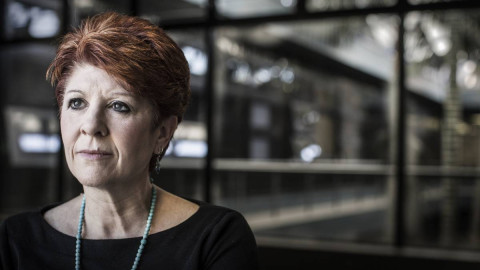
Traditionally, most research about autism is conducted by people who are not themselves on the autism spectrum.
However Dr Amanda Webster, from the School of Education, and her fellow University of Wollongong researchers, are involving autistic people in all aspects of the research process, from deciding research questions, to data collection and analysis, to translating the findings into real-world outcomes.
This approach has won a lot of friends and has led to UOW being made a co-production partner in the Australian Cooperative Research Centre for Living with Autism (Autism CRC).
Read more: UOW inks autism alliance to help people on the spectrum
The Autism CRC established the Research Co-production Partner Initiative to promote inclusive research practices with autistic community members and families.
Co-production recognises and values the skills and expertise that autistic people, their families and carers have gained through their lived experience, and engages them at every stage of the research process.
In one UOW project, members of the autistic community were engaged as research assistants to help construct principles for designing autistic-friendly businesses and community environments.
In another initiative, Dr Webster and Ms Barb Cook, an autistic author, established the Autism Community of Practice (CoP), which has engaged a number of autistic individuals as co-investigators on research to develop tools and strategies to promote the self-determination of autistic people.
This group is currently undertaking projects in schools disability service programs, and has contributed knowledge and practice under the National Disability Insurance Scheme.
Dr Webster emphasised that research co-production ensures research findings and recommendations are meaningful and socially valid to the people most affected.
"In autism research, co-production is particularly important as autistic individuals have often been silent recipients of research that is based on priorities and agendas that marginalise them and diminishes their sense of self-worth," she said
"Engaging autistic individuals in co-production of research gives them and their families a voice in research priorities and methods. More importantly, it provides a critical means of making sure that research findings can be used to positively impact real-world practice.
Co-production is particularly important as autistic individuals have often been silent recipients of research that is based on priorities and agendas that marginalise them and diminishes their sense of self-worth.
Dr Amanda Webster, from UOW's School of Education
"I have found that not only do most individuals embrace and become energised by co-production, but it also helps them to develop networks and skills they need to become more successful advocates in their own lives and community."
Read more: UOW scientists' role in promising new brain cancer therapy
This approach to co-production of knowledge is mirrored in UOW's Master of Autism postgraduate program, which engages autistic experts in the design and delivery of content, and in the Teaching and Research Community Seminar Series.
Both programs are overseen by Dr Webster.
A central theme of both the Master of Autism and current research programs is creating supportive communities and practices that presume the competence of individuals to exercise self-determination over their own lives.